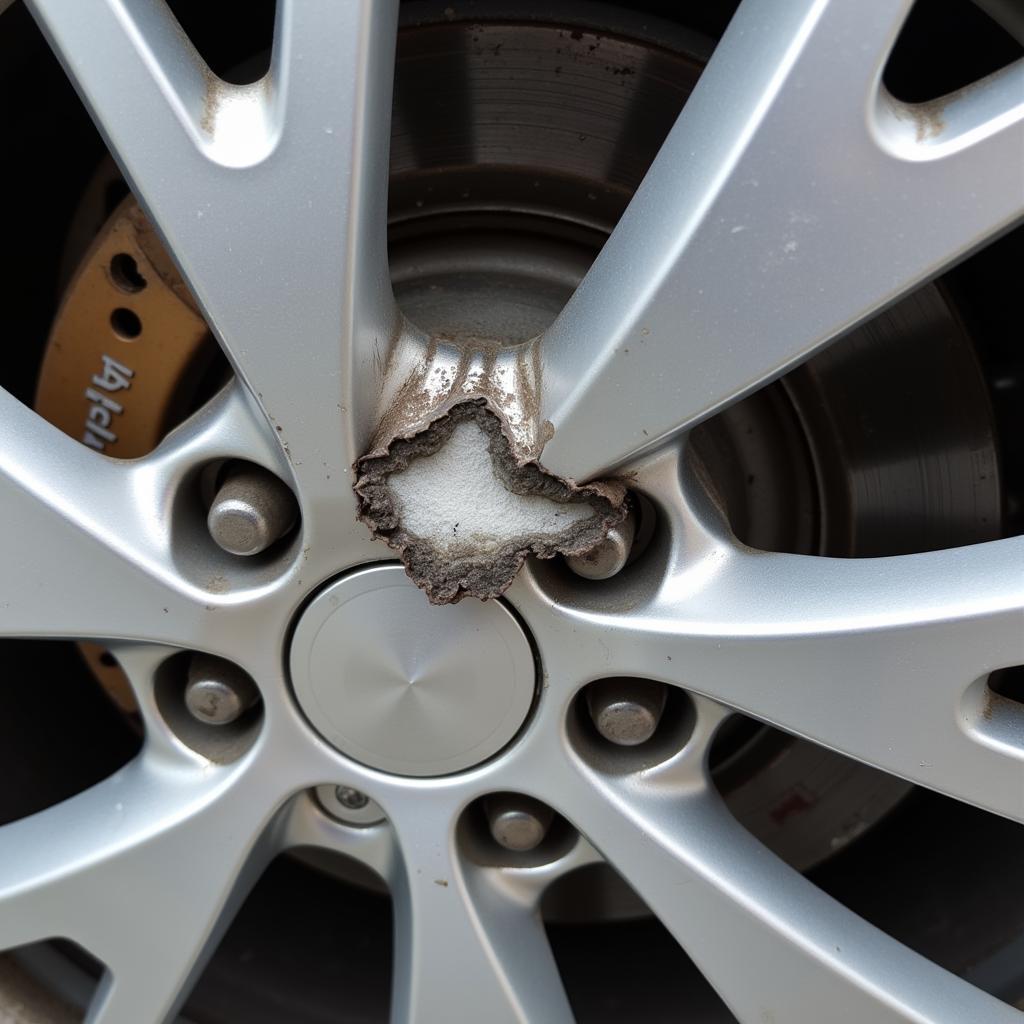It’s a sinking feeling we’ve all experienced—turning the key in the ignition and…nothing. Your car won’t start, leaving you stranded and wondering what could be wrong. Before you panic, take a deep breath. There are several common reasons why your car might refuse to start, and many of them can be easily diagnosed and fixed.
Common Culprits When Your Car Won’t Turn Over
Let’s break down some of the most frequent offenders that prevent your car from starting, from simple fixes to more complex issues:
1. Dead Battery: The Usual Suspect
The most common reason for a car not starting is a dead or weak battery. You might hear a clicking sound when you turn the key, indicating the battery doesn’t have enough juice to engage the starter motor.
Possible Causes:
- Leaving lights on: Accidentally leaving your headlights or interior lights on overnight can drain your battery.
- Old Age: Car batteries have a lifespan, typically 3-5 years.
- Extreme Temperatures: Both extreme heat and cold can affect battery performance.
Solution:
- Jump Start: Try jump-starting your car using jumper cables and another vehicle or a portable jump starter.
- Battery Charge: If the jump start works, drive to an auto parts store or mechanic to have your battery tested and potentially charged or replaced.
2. Alternator Issues: The Battery’s Partner in Crime
The alternator charges the battery while the engine is running. If your alternator is faulty, your battery won’t receive a charge, and eventually, you’ll experience starting problems.
Possible Causes:
- Worn-out alternator: Like batteries, alternators have a limited lifespan.
- Loose or broken belt: The alternator is driven by a belt; if it’s loose or broken, the alternator won’t function correctly.
Solution:
- Alternator Testing: A mechanic can test your alternator to see if it’s functioning correctly.
- Alternator Replacement: If the alternator is faulty, it will need to be replaced.
car wont start ignition problems
3. Starter Motor Failure: The Engine Cranker
The starter motor is responsible for cranking the engine to get it started. If you hear a grinding noise when you turn the key or nothing happens at all, it could be a sign of a failing starter motor.
Possible Causes:
- Worn-out starter motor: The starter motor can wear out over time.
- Electrical issues: Problems with the wiring or connections to the starter motor can prevent it from working.
Solution:
- Starter Motor Testing: A mechanic can test the starter motor to determine if it’s the source of the problem.
- Starter Motor Replacement: If the starter motor is faulty, it will need to be replaced.
4. Fuel System Problems: No Fuel, No Go
If your engine cranks but doesn’t start, the problem could lie within the fuel system.
Possible Causes:
- Empty gas tank: It seems obvious, but it happens!
- Clogged fuel filter: A clogged fuel filter restricts fuel flow to the engine.
- Faulty fuel pump: The fuel pump delivers fuel from the tank to the engine; if it fails, the engine won’t get the fuel it needs.
Solution:
- Check Fuel Level: First, make sure you have enough gas in your tank!
- Inspect Fuel Filter: Have a mechanic inspect and replace the fuel filter if necessary.
- Fuel Pump Inspection: A mechanic can check the fuel pump’s operation.
5. Ignition System Malfunctions: The Spark Plug Connection
The ignition system provides the spark needed to ignite the fuel in the engine.
Possible Causes:
- Worn-out spark plugs: Spark plugs wear out over time and need replacement.
- Faulty ignition coil: The ignition coil provides the high voltage needed for the spark plugs; if it fails, the spark plugs won’t fire.
Solution:
- Spark Plug Inspection: Check the spark plugs for wear and replace them if needed.
- Ignition Coil Testing: A mechanic can test the ignition coil to see if it’s working correctly.
car problems and solutions free
6. Sensor Issues: The Engine’s Messengers
Modern cars rely on various sensors to control engine functions. If a sensor malfunctions, it can prevent the engine from starting.
Possible Causes:
- Faulty crankshaft position sensor: This sensor tells the engine computer the position of the crankshaft, which is essential for timing the ignition and fuel injection.
- Faulty camshaft position sensor: Similar to the crankshaft sensor, the camshaft sensor provides information about the camshaft’s position.
Solution:
- Diagnostic Scanning: A mechanic can use a diagnostic scanner to read error codes from the car’s computer, which can help identify faulty sensors.
- Sensor Replacement: Faulty sensors will need to be replaced.
Expert Insights
“Often, car owners overlook the simple things,” says master mechanic John Miller. “Before assuming the worst, always check your battery connections, make sure you have fuel, and listen carefully to any sounds when you try to start your car. Those clues can be incredibly helpful in diagnosing the problem.”
When to Call a Mechanic
While some car starting problems can be solved with basic troubleshooting, it’s essential to know when to call in a professional.
Seek professional help if:
- You’ve tried the basic troubleshooting steps, and your car still won’t start.
- You’re not comfortable working on your car.
- You suspect a more complex issue, like a faulty sensor or a problem with the engine’s computer.
Conclusion
A car that won’t start can be incredibly frustrating, but by understanding the common causes and following the troubleshooting tips outlined in this guide, you can increase your chances of getting back on the road quickly. Remember, when in doubt, it’s always best to consult with a qualified mechanic. They have the expertise and tools to diagnose and fix your car starting problem safely and effectively.
If you are experiencing car troubles and need assistance, our team at AutoTipPro is here to help. Contact us at +1 (641) 206-8880 or visit our office located at 500 N St Mary’s St, San Antonio, TX 78205, United States. We’re dedicated to getting you back on the road.





Leave a Reply